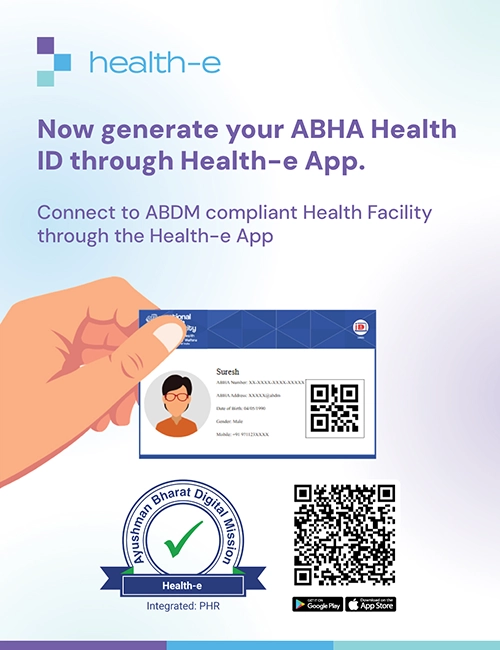Medically reviewed by Neesh Patel, MB DCH
As the first trimester of your pregnancy nears an end, it is completely normal for you to start wondering what your child would look like! While these things remain unknown until the baby is born, there are several non-invasive tests recommended for awareness about the development status of the foetus. The double marker test is one such test that the doctor might ask you to take.
What is a Double Marker Test in Pregnancy?
Also known as the maternal serum screening, the double marker test is usually a part of the initial screening done during the first trimester. It helps you know whether there are any possibilities of complications like chromosomal abnormalities or defects in the health of the unborn.
This test comes under the category of predictive tests, as you cannot definitively tell whether the results are accurate or not. However, it is a useful test to help pregnant couples determine the health of their foetus as it also ensures to check for any scope of neurological disorder like Down Syndrome or Edward’s Syndrome.
Why is a Double Marker Test Done?
The first-trimester screening that contains the double marker test is not compulsory for every woman. However, it is recommended for individuals above the age of 35 or someone with an increased danger of developing chromosomal problems. These people are the ones who have a family history of these issues. One thing to remember when taking this test is that it will not determine whether your baby has abnormalities. Rather, it tells you whether your unborn child is at risk of developing certain abnormalities.
Here’s why doctors recommend pregnant couples choose to get the double marker test:
- You can find out the condition of your foetus’ trisomy of chromosome number 13, responsible for causing mental disorders in young kids
- It can help detect irregularity in chromosomal 21 that results in Down Syndrome
- This test can determine whether a mother is at risk at any stage of her pregnancy
- If the results come out positive, the couple gets enough time to analyse their condition and decide the future of the pregnancy
Double Marker Test Normal Values
The double marker test normal value for hCG is 25700-288000 mIU/ml for women of all age groups. While the double marker test normal value of PAPP – A for females across all ages is 1 MoM.
What is the Cost of a Double Marker Test?
The double marker test cost will depend on your country and city as availability is a significant factor since it is only available in selected cities. However, the average cost in India can range between ₹2,500 to ₹3,500.
Difference Between NT Scan and Double Marker Test
While the NT scan is an ultrasound test, the double marker test is a blood test. Apart from the method, there are no significant differences between the two tests. Both tests are recommended during the first trimester, and the doctor suggests doing both tests in your first-trimester screening for the most accurate results. In fact, the NT scan is considered ineffective if not followed by a double marker test.
How Can Health-e Assist You?
Handling pregnancy is not an easy task. While you are trying to cope with the morning sickness, extreme mood swings, swollen feet, and other such pregnancy-related symptoms, you also have to keep up with your regular doctor appointments. And carrying a bulk of previous medical files will only add to your confusion and stress. Health-e can be your perfect medical partner throughout your pregnancy and then also when you baby is born!
Take ownership of your health by digitalising your medical records and simplifying future doctor visits. Our digital health locker re-imagines healthcare by collecting all your health information in one place. So, ditch the old bulky medical records, file and folders and switch to the new way!
With Health-e, you can:
- Build your health profile
- Retrieve the medications and previous prescriptions
- Store your insurance data
- Maintain all records of immunisation
- Keep your scans, lab and test reports in one place
- Enter other miscellaneous and necessary information
… everything in one place!
FAQs
1. When is the double marker test recommended?
The double marker test is not mandatory. However, it is recommended that pregnant women above 35 with a family history of chromosomal or neurological disorders do the double marker test as part of their first trimester screening.
2. How is the double marker test done?
The double marker test is an easy blood test done at a lab. You cannot drink or eat anything before taking the test. Once the test is done, the results can come in three days to a week.
3. Can the double marker test be done after 14 weeks of pregnancy?
Ideally, doctors recommend doing the double marker test within 9 to 13 weeks of pregnancy. However, if you miss that timeframe, you can take the risk assessment test, also known as the quadruple marker test, between 15 and 21 weeks of your pregnancy.
4. How to read a double marker test report?
The test results are indicated in a ratio form between 1:10 to 1:250. Low-risk or screen-negative means the results are normal with a low probability of chromosomal abnormalities. And a moderate-risk or high-risk, indicated as screen-positive, means your baby is likely to develop a chromosomal abnormality. In this situation, the doctor may recommend getting more invasive tests done to confirm the risk.
5. What is the difference between a double marker and triple marker test?
Both tests are non-conclusive and done to get an idea about any abnormalities in the foetus. However, the main difference between the two is the time period in which the tests are conducted and the hormones that are tested.
- Double Marker Test: This test is conducted between 9 to 13 weeks of pregnancy for higher accuracy, and the hormones that are tested are pregnancy-associated plasma protein A (PAPP-A) and free beta-human chorionic gonadotrophin (beta-hCG).
- Triple Marker Test: For this test, the hormones that are tested are alpha-fetoprotein (AFP), human chorionic gonadotropin (hCG), and estriol. The triple marker test is ideally recommended between 15 to 20 weeks of pregnancy.





